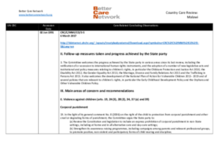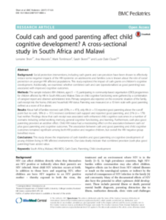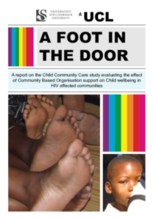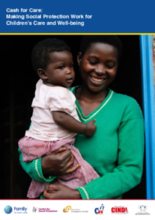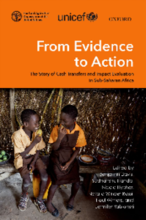childrens_living_arrangement
children_living_without_bio
Displaying 41 - 50 of 104
Catholic Relief Services seeks Chief of Party I – Project Director, 4 Children-Milawi for its Lilongwe, Malawi location. The 4Children Malawi Project Director (PD) will have extensive expertise in OVC programming, HIV and PEPFAR programs, an
This country care review includes the care-related Concluding Observations adopted by the Committee on the Rights of the Child.
This study describes the impact of cash grants and parenting quality on 854 children aged 5–15 (South African and Malawi) on educational outcomes including enrolment, regular attendance, correct class for age and school progress (controlling for cognitive performance).
This study explored the impact of cash grants on children’s cognitive development. Additionally, the authors examined whether combined cash and care (operationalised as good parenting) was associated with improved cognitive outcomes.
This project adds to the newly emerging literature on orphan tourism. In-depth, open-ended interviews and participant observations were conducted over a three-month period with American travelers to a Malawian orphanage between 2009 and 2010.
This report evaluates the efficacy of community based organisations and discusses the need for the evaluation of community based care for children living in HIV communities.
Family for Every Child, in partnership with the Centre for Social Protection at the Institute for Development Studies, just announced the launch of its Cash for Care: Making Social Protection Work for Children’s Care and Well-being Report.
This book published jointly by FAO, UNICEF, and Oxford University Press presents the findings from evaluations of the Transfer Project, a cash transfer project undertaken in the following sub-Saharan African countries: Ethiopia, Ghana, Kenya, Lesotho, Malawi, South Africa, Zambia, and Zimbabwe. It concludes that cash transfers are becoming a key means for social protection in developing countries.
This study explores the relationship between orphanhood prevalence, living arrangements and orphanhood reporting.
This report captures what has been accomplished in social service workforce strengthening in eight countries in Sub-Saharan Africa and highlights areas for future intervention. Progress made to strengthen the social service workforce within these countries is useful when reflecting on global trends and ways forward.

